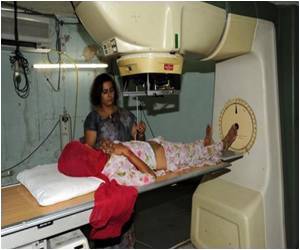A protein that is necessary for lactation in mammals also acts as a tumour suppressor in breast cancer, shows a study including Indian origin researchers.

"This is the first confirmed report that this protein, called Elf5, is a tumour suppressor in breast cancer," explained Satrajit Sinha, PhD, associate professor of biochemistry in the UB School of Medicine and Biomedical Sciences and a corresponding author on the paper with Yibin Kang, PhD, in the Department of Molecular Biology at Princeton University.
The researchers said the findings provide new avenues to pursue in treating and diagnosing breast cancer and possibly cancers of other organs as well. The paper includes findings from both animal and human breast cancer models.
Under normal circumstances, Elf5 is a transcription factor that controls the genes that allow for milk production.
But when the researchers used knockout mice developed at UB, in whom Elf5 was removed, they found more than just an inability to produce milk. They found that epithelial cells in the mammary glands also became more mesenchymal, that is, more like stem cells, an early harbinger of cancer, Sinha said.
"We found that when Elf5 levels are low or absent, epithelial cells become more like stem cells, morphing into mesenchymal cells, changing their shape and appearance and migrating elsewhere in the body. This is how cancer spreads," said Sinha.
Advertisement
"Elf5 keeps normal breast cells in their current shape and restricts their movement," stated Chakrabarti.
Advertisement
"Elf5 keeps Snail2 repressed, but once Elf5 is lost, then there is nothing to repress Snail 2," she explained.
The researchers noted that Elf5 loss is frequently detected early in the disease at the breast hyperplasia stage, when the number of cells increases. In experiments conducted by the Princeton scientists, the researchers also found that little or no Elf5 in human breast cancer samples correlated with increased morbidity.
"It seems that loss of Elf5 is an initial event in the disease, so it could also be an important diagnostic tool," Sinha noted, which is a current focus of the UB and Princeton team.
The research was reported in November issue of Nature Cell Biology.
Source-ANI














